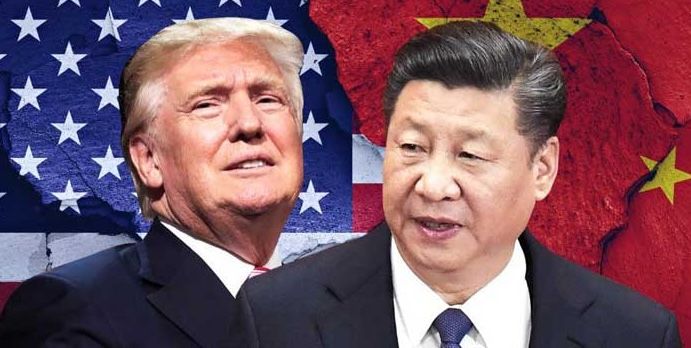Donald Trump, once again elected as President of the United States, is yet to officially assume office.
However, his well-publicized promise to enforce new tariffs on Chinese goods has already sent ripples through the global business community.
Having triggered a substantial production shift away from China during his first tenure in 2016, Trump’s latest proposal—60% or higher tariffs on Chinese imports—has revived those concerns.
With potential 20% tariffs on all foreign-made products, US and international companies are strategizing quickly to minimize exposure to such economic penalties.
Steve Madden to cut production in China by half
Among the first to act is Steve Madden, the American fashion retailer renowned for its popular footwear and accessories.
CEO Edward Rosenfeld revealed that the company, which imports over 70% of its US inventory from China, has moved swiftly to shield itself from the expected economic fallout.
Rosenfeld announced plans to slash its China-based production by nearly half within the coming year, pivoting instead to factories in Vietnam, Cambodia, Brazil, and Mexico.
“We have been planning for a potential scenario in which we would have to move goods out of China more quickly,” Rosenfeld stated on a call following its earnings on Thursday.
“As of yesterday morning, we are putting that plan in motion.”
This proactive measure follows years of diversifying the company’s production base to mitigate risks associated with concentrated sourcing in China.
Still, Rosenfeld admitted that maintaining supply chains outside of China presents logistical and operational challenges that companies must navigate carefully.
Breville to move production away from China
Australian appliance giant Breville, known for its premium kitchen devices, echoed a similar shift in response to Trump’s policy promises.
Speaking to shareholders during its annual meeting on Thursday, Breville CEO Jim Clayton said, “Now that [Donald] Trump has won the US Presidential election, the near-term risk of material tariff increases on consumer goods coming out of China has solidified.”
Clayton stated that the company is already taking action in response to Trump’s election, including accelerating the relocation of more of its production out of China to shield itself from potential new US tariffs.
“We will continue our inventory build in the US, unabated, likely until the increased tariffs are enforced,” Clayton said.
The Australian company markets appliances like espresso machines, toasters, juicers, and microwaves in over 70 countries, including the US.
The majority of its products are produced in the region surrounding Shenzhen, a vast Chinese city located near the Hong Kong border.
Breville has longstanding relationships with Chinese manufacturers around Shenzhen, a major industrial hub.
Clayton acknowledged that while these partnerships have historically allowed the company to maintain competitive pricing, the risk of impending tariffs has forced an adjustment in strategy.
This tactic builds on Breville’s previous crisis management during the COVID-19 pandemic, which involved stockpiling goods to buffer against supply chain disruptions.
Yet, experts warn that holding excessive stock comes with risks, such as potential shifts in consumer demand that could erode profit margins.
Apart from Steve Madden and Breville, Church & Dwight Co. is also shifting some of its production out of China, particularly for its Waterpik oral-care line.
“There are plans in place and actions that we’ve taken to mitigate that impact,” CFO Rick Dierker said last week in response to a question on tariffs.
“Just like everybody, we’re well aware of implications there.”
Taiwan steps up to assist relocating businesses
Notably, Taiwan has emerged as a supportive player amid the shifting production landscape.
The nation’s economy minister, Kuo Jyh-huei, announced plans to aid Taiwanese businesses seeking to relocate their manufacturing bases away from China.
“We will as soon as possible come up with help for Taiwan companies to move their production bases,” Kuo said, emphasizing the potential impact of Trump’s tariffs on Taiwanese manufacturers heavily invested in China over the past four decades.
This initiative aligns with broader supply chain strategies that could see Taiwanese firms not only shifting production domestically but also exploring relocation to US soil to mitigate exposure to the new tariffs.
Challenges of moving away from China
Bert Hofman, former World Bank country director for China, provided insight into why companies may find moving out of China arduous.
“Most suppliers to companies such as Madden are based in China, thus it is easy to source there. Moving to another country for production adds complexity in terms of logistics, customs, and settling into a new country for production,” he said in a report by The New York Times.
This inherent complexity may compel companies to choose alternative low-cost manufacturing bases outside of China rather than a full relocation to the US.
Further analysis from RBC Capital Markets analyst Wei-Weng Chen warned about Breville’s plan to accumulate stock.
Chen pointed out that increased inventory could elevate the company’s working capital intensity, potentially impacting stock performance if consumer spending decreases in response to broader economic pressures.
The post Trump tariff fears: companies begin to shift production from China appeared first on Invezz

